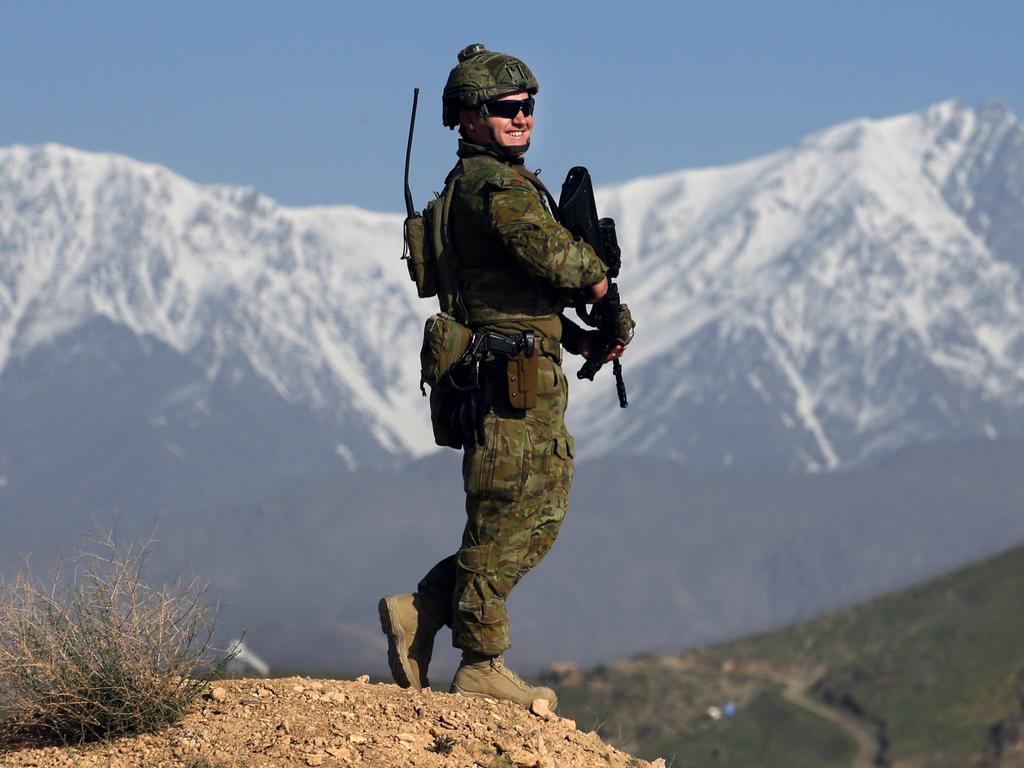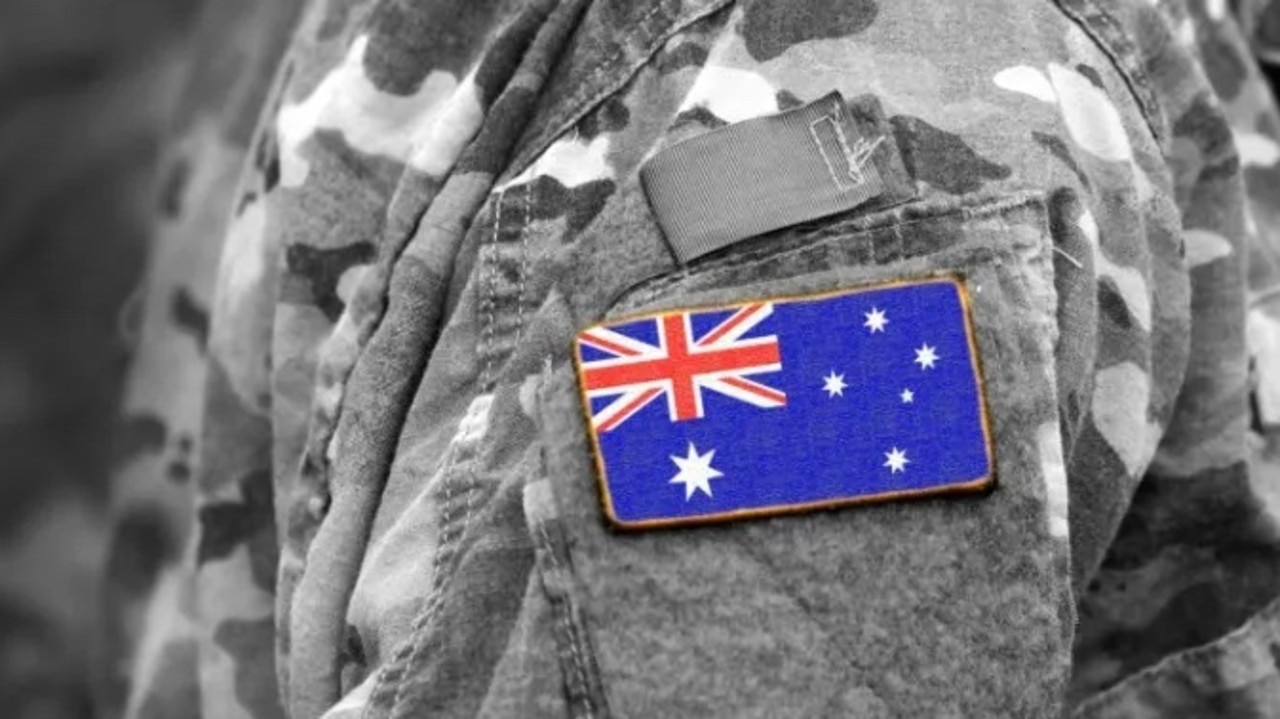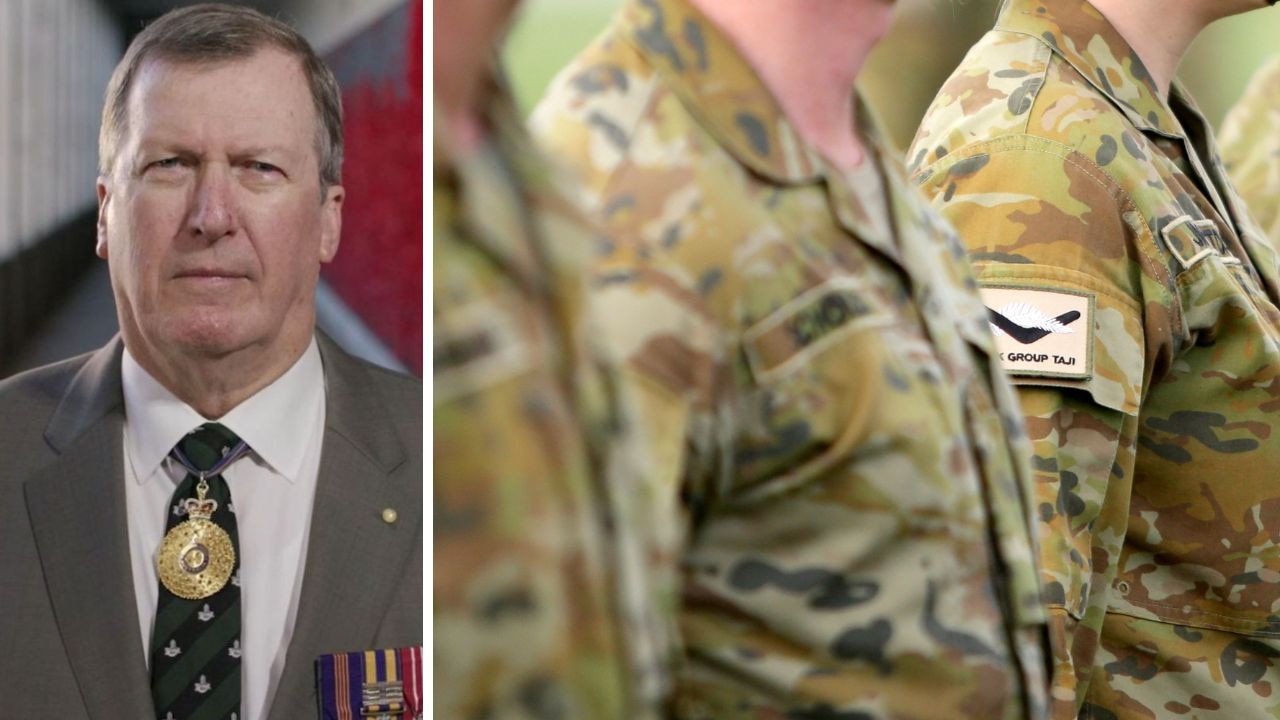Last Australian troops to withdraw from Afghanistan
Scott Morrison draws a line under Australia’s longest war that cost the lives of 41 Diggers and cost $8bn under six PMs.
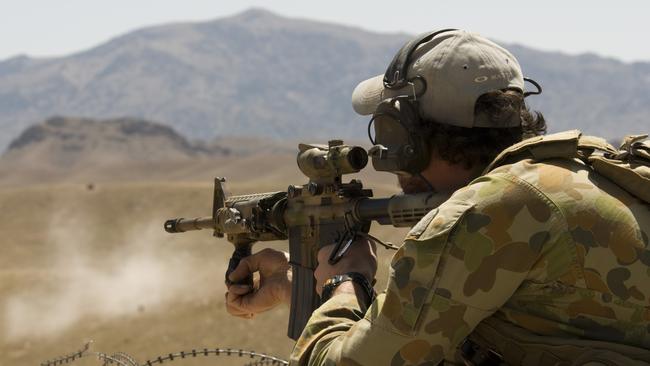
Australia’s longest war will end in September after Scott Morrison pledged to pull out all troops from Afghanistan, drawing a line under the two-decade conflict that cost the lives of 41 Diggers, scarred a generation of veterans and cost $8bn under six prime ministers.
Following the historic decision by US President Joe Biden to end the “forever war” triggered by the 2001 terrorist attacks on New York’s twin towers and withdraw all American forces by September 11, the Prime Minister said on Thursday the withdrawal of Australian troops represented a milestone in Australia’s military history.
Reading out the names of all 41 Australians who “sacrificed their lives for the sake of freedom”, Mr Morrison said the task of safeguarding Afghanistan’s security had come at “a great cost”.
“This day, we dedicate to their memories, we think of their families, their friends, the life they would have lived,” the Prime Minister said. “The loss is great. The sacrifice, immense, the bravery and courage, things we can speak of, but not know of personally.”
Mr Morrison shed tears in an emotional news conference in Perth, declaring the generation of Australians who fought in Afghanistan as “amongst our greatest ever who have served in the name of freedom”.
Amid fears the withdrawal could plunge Afghanistan back into the grip of the Taliban, unwind hard-fought social advancements and embolden extremist movements across the globe, Mr Morrison defended the conflict and said Australia was committed to helping the war-torn nation “preserve the gains of the last 20 years, particularly for women and girls”.
“Freedom is always worth it,” he said. “While our military contribution will reduce, we will continue to support the stability and development of Afghanistan through our bilateral partnership and in concert with other nations.”
Former chief of army Peter Leahy and other defence experts praised the initial commitment to Afghanistan in 2001 by the Howard government. Professor Leahy said it was critical to “get Osama bin Laden, to get al-Qa’ida, to make sure that Afghanistan didn’t become a haven for terror operations”, but warned the mission lost focus and suffered badly as a result of the Iraq invasion in 2003.
Professor Leahy, now director of the national security institute at the University of Canberra, warned there “wasn’t this clear definition of a strategy (or) what the end state was going to be” and argued for greater strategic clarity ahead of future conflicts.
“I think we really should be asking questions of ourselves as we perhaps look for conflicts in the future: what is our end state, what are we going there for, what is the mission, what are our interests and most importantly what does victory look like?” he told Sky News.
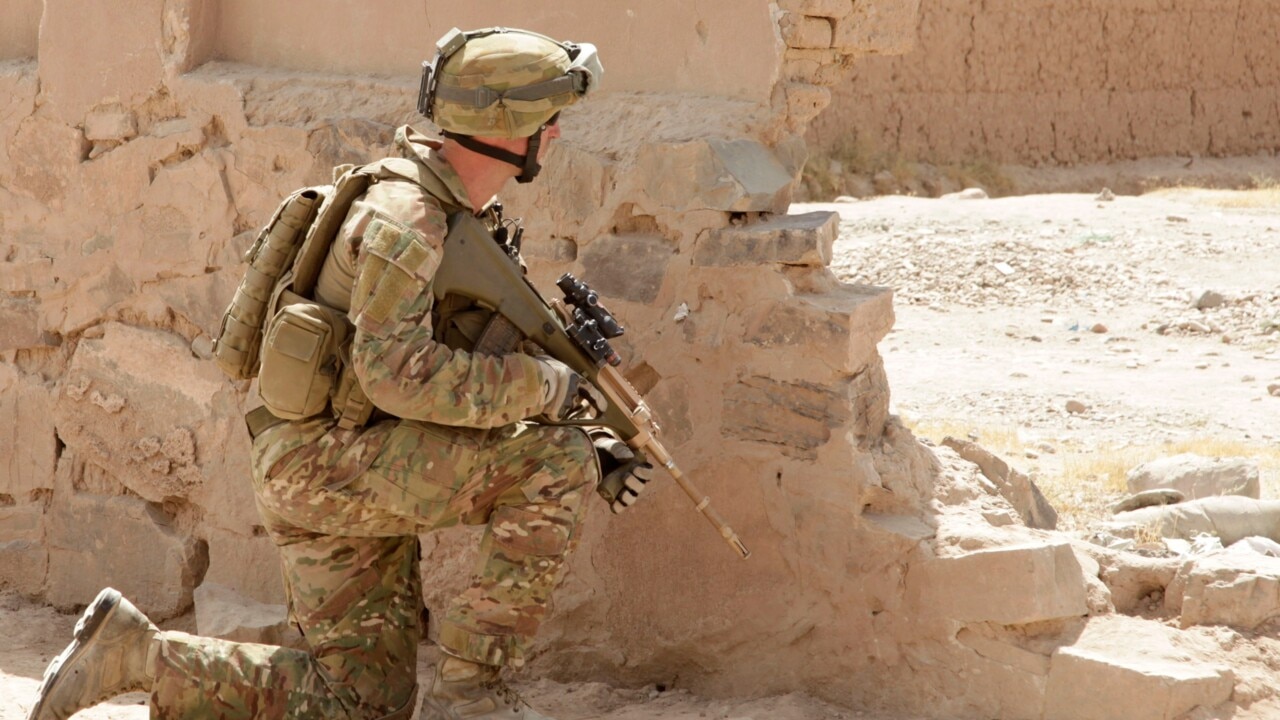
Mr Morrison said the war had left deep mental and physical scars that the nation would be dealing with for many years to come.
“We commit ourselves to supporting them,” he said.
He also said Australia continued to support the ongoing peace negotiations between the Afghan government and the Taliban.
“We encourage both parties to commit to the peace process that so many Australians have died to provide for,” Mr Morrison said.
Australian Strategic Policy Institute defence director Michael Shoebridge said the coalition’s initial deployment to Afghanistan prevented the country from becoming the centre of global terrorism. “In the aftermath of the shocking attack in 2001 this was the right thing to do,” Mr Shoebridge said. “There is no longer a single centre of global terror. It is now a dispersed threat and needs to be approached by different governments in different ways.”
Mr Shoebridge said the announcement by Mr Biden signalled a “symbolic shift in the US’s priorities” towards China.
“Even a superpower needs to have clear priorities and he is creating room to do what he says are the most important things: confronting the strategic threat of China,” he said. “This is something President Obama and President Trump could not achieve.”
Mr Shoebridge conceded the chances of a growing terror base under the Taliban were heightened after foreign troops were withdrawn.
Australia has reduced its military presence in Afghanistan from a high of more than 1500 personnel to about 80 current personnel. That will reduce to zero by September as part of the drawdown of Australia’s contribution to the 9500-strong coalition.
Australian National University emeritus professor William Maley, who specialises in Afghanistan, warned the Taliban had “never been power-sharers”.
“It was delusional on the part of the US if indeed they thought they were going to share power,” Professor Maley said.
“There is a real danger that the psychological consequence of the announcement of foreign withdrawal from Afghanistan will embolden the Taliban to attempt to seize complete power.
Professor Maley, who was critical of the US decision to withdraw, said it was a “poor strategic decision because it’s likely to have a range of consequences that the Americans seem not to have contemplated.”

The Lowy Institute’s Rodger Shanahan said the key mistake in Afghanistan had been “taking your eye off the ball and joining in the invasion of Iraq — that was the wrong thing to do”.
“If we hadn’t been sidelined or distracted by Iraq who knows how Afghanistan could have turned out,” he said. “That was the key lost opportunity of dividing your forces and political focus. Afghanistan wasn’t really a war of choice. You had to do something.”
Labor defence spokesman Brendan O’Connor said the opposition thanked all who had served and were currently serving in Afghanistan.
Former prime minister Kevin Rudd said the withdrawal of Australian troops from Afghanistan had been “too many years coming” and argued for a period of national reflection on why the military presence had been maintained for so long.
The former Labor leader argued for Australia to continue to provide aid to the Afghan government to help its economic development and extended his thanks to the men and women of the ADF who had served in the conflict, including those who perished.
“I hope that, in the aftermath of this longest war, our country will take a hard look at our experience in Afghanistan including questioning why we have maintained a lingering military presence for so long after the mission in Oruzgan concluded,” he said.
“Secondly, Australia should remain a long-term aid partner of the Afghan government. This should focus on training programs for Afghan economic officials, sustainable agriculture, basic health care and infrastructure.”



